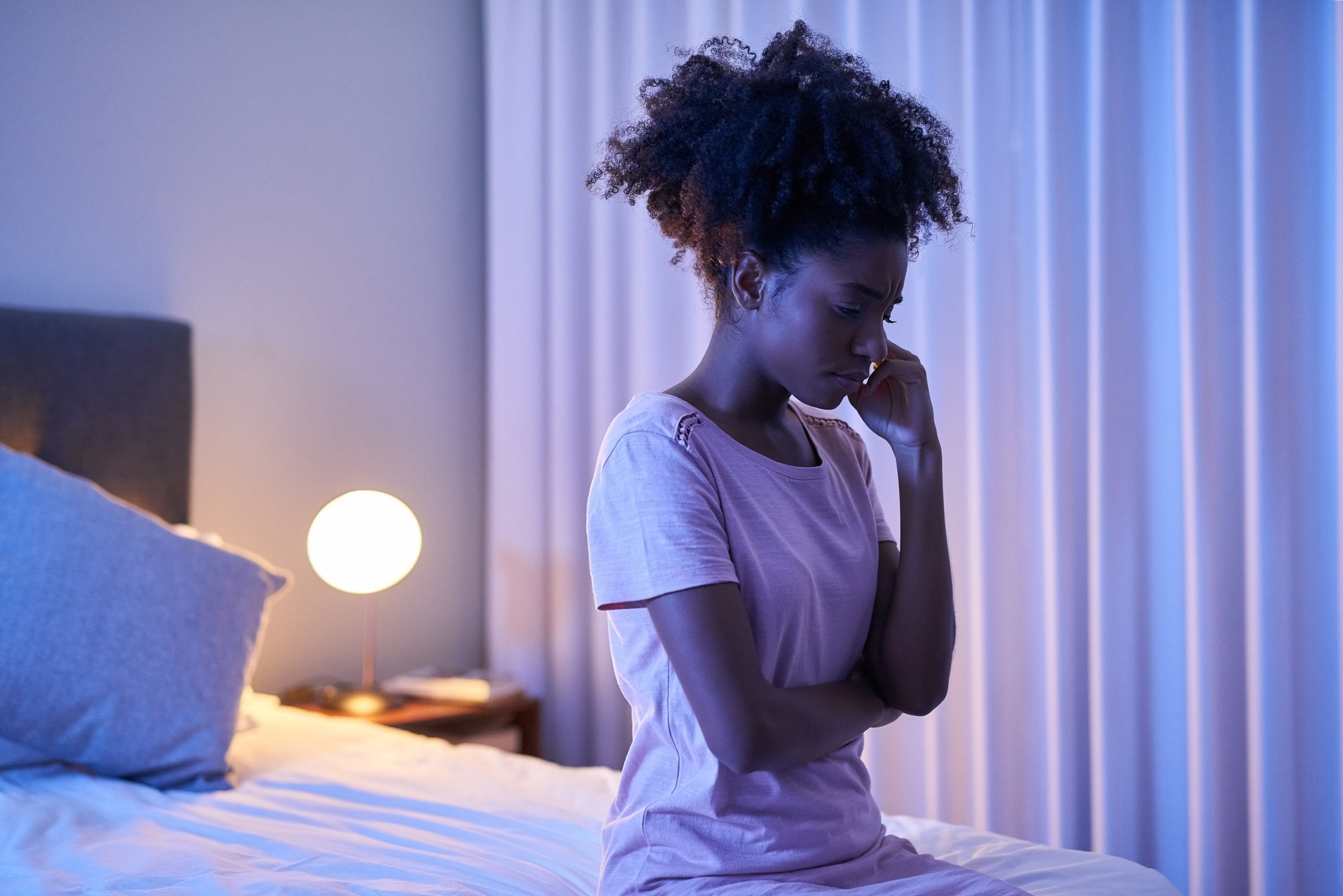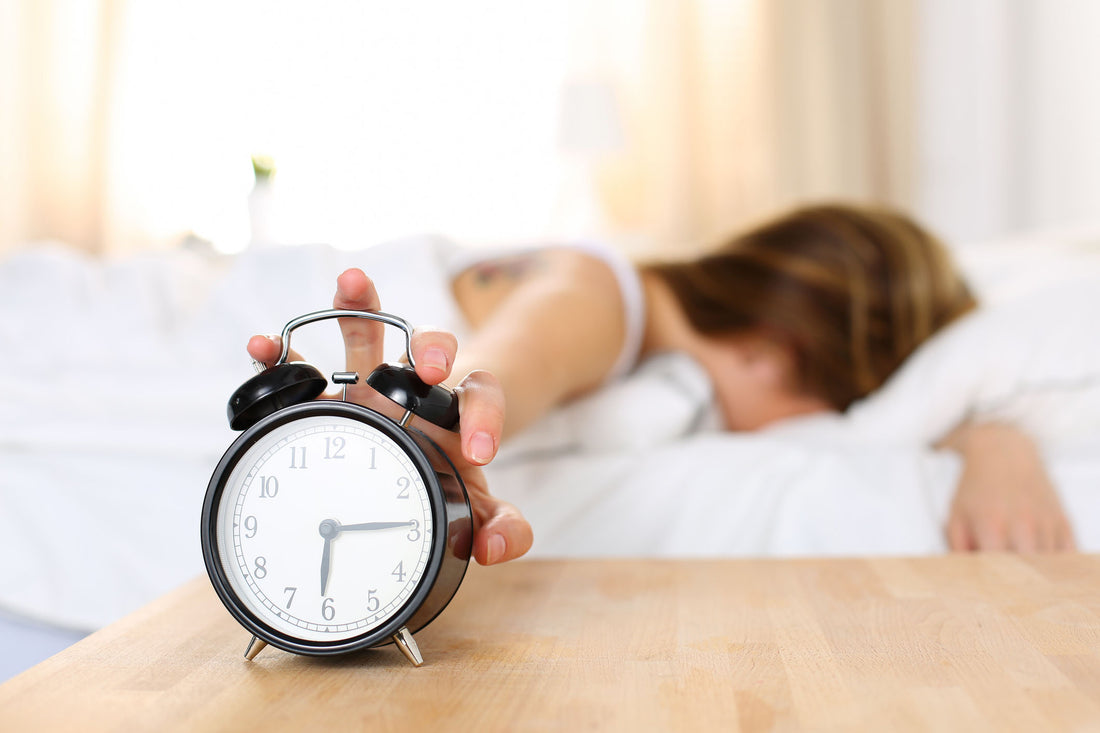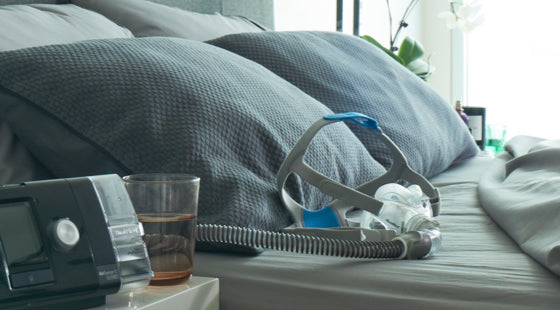News
Spring Forward your Sleep
wp:paragraph In just a few days, the clocks will be moving forward by one hour for the “spring forward” time change. Unlike the fall, where an hour is gained, the spring time change tends to be a little more difficult on many people. Since you lose an hour, your sleep schedule and routine may be thrown off a bit, leaving you feeling a little “off” for a few days afterwards. /wp:paragraph wp:paragraph Luckily there are a few ways to make this transition a smooth one. Here are a few tips for adjusting to the spring time change. /wp:paragraph wp:paragraph Transition gradually /wp:paragraph wp:paragraph Starting a few days beforehand, try to gradually move your bedtime earlier by just 15 minutes each night. This also means that you may be waking up a little earlier, however you will still be getting the same amount of sleep as normal. This will not only help you to feel well rested but will also help to lessen the effects of the time change once it happens. /wp:paragraph wp:paragraph Practice good sleep habits /wp:paragraph wp:paragraph Even with a time change, good sleep habits are important for a well-rested night of sleep. Don’t deviate from your normal bedtime routine and avoid heavy meals and stimulating substances before bedtime (including caffeine, alcohol and tobacco). It will also help to get some exercise in during the daytime, and to try and get as much sunlight as possible during the day to help with your internal clock. /wp:paragraph wp:paragraph Give yourself some grace /wp:paragraph wp:paragraph This transition does not come easily to everyone. If you are feeling affected by this in a negative way, know that you are not alone! If a short nap during the day will help you get back on track with your sleep schedule, this is not a problem as long as you do not make this a regular habit. Also, if you are experiencing insomnia because of this, try not to “sleep it off.” Rather than lying awake for an extended period, get out of bed and do a relaxing activity (such as reading) until you start to feel sleepy. /wp:paragraph wp:paragraph Contact us for more information. /wp:paragraph
about Spring Forward your SleepSleep Differences in Women
wp:paragraph In honour of International Women’s Day on March 8th, we will be looking at sleep differences between women and men. While it may be easy to think that something like sleep affects both genders the same way, this is not necessarily the case. Here are a few of the major differences in sleep habits among women. /wp:paragraph wp:paragraph Amount of sleep required /wp:paragraph wp:paragraph The average adult requires around 7-9 hours of sleep each night, though women tend to do better with a little more than that. What you may not know is that women have more trouble fulfilling this requirement more than men do. This is often because of a few minor differences in both the REM sleep cycle and the circadian rhythm (AKA your internal clock) for women. While the differences are very subtle, it can still add up and affect a woman’s sleep cycle significantly more. /wp:paragraph wp:paragraph Insomnia and other sleep disorders /wp:paragraph wp:paragraph This includes sleep apnea, and chronic insomnia just to name a few. Did you know that women are 40% more likely than men to experience insomnia in their lifetime? Insomnia in women also comes with more symptoms than in men. And let’s not forget about sleep apnea, while it is diagnosed in men more often, women can still get it too and sadly, a lot of sleep apnea cases in women go mis-diagnosed because of how common it is in men. /wp:paragraph wp:paragraph Hormones /wp:paragraph wp:paragraph One of the biggest factors of sleep differences amongst the genders! A shift in hormone production throughout a woman’s life can create sleeping issues. This starts as early as puberty, once a woman starts menstruating. A drop in hormone production before a woman’s menstrual cycle can cause physical and emotional effects, which include a lack of sleep. Pregnancy also brings a significant change in hormone production that can interfere with a woman’s sleep cycle not only throughout pregnancy, but in the post-partum stage as well. Finally, menopause has been known to create many sleep disturbances in women, thanks to many symptoms such as hot flashes and night sweats. /wp:paragraph wp:paragraph Contact us for more information. /wp:paragraph
about Sleep Differences in WomenAn Overview of CPAP Supplies and Parts
wp:paragraph If you are newly diagnosed with sleep apnea, your doctor may have prescribed a treatment called a CPAP machine, which stands for Continuous Positive Airway Pressure and exhibits a continuous air flow through your system to prevent sleep apnea episodes. If you are new to the CPAP then you may be feeling a little overwhelmed by everything that helps it to function successfully. So here is a little overview of all the important parts of a CPAP machine: /wp:paragraph wp:paragraph The machine: The most important part as the other parts will not work without it. The level of air flow set by your doctor will be programmed on the machine and can only be changed by your medical team. /wp:paragraph wp:paragraph The mask: There are many different types of masks that are suitable for different preferences, take the time to find one that will suit your personal preference. /wp:paragraph wp:paragraph Tubing: An essential part for connecting the mask to the power supply. /wp:paragraph wp:paragraph Mask liners/cushions: Since the mask will be sitting on your face for several hours at a time, the lining or cushions on the mask will make for a more comfortable user experience. /wp:paragraph wp:paragraph Humidifier (if applicable): While this may not be used all the time, the humidifier keeps your airway moist as a dry airway is extremely common amongst CPAP users. When and how this is used will depend on not only the strength of your prescription, but also external factors such as climate. /wp:paragraph wp:paragraph Here are a few other parts that are good to have on hand: /wp:paragraph wp:paragraph Backup power supply: Most CPAP machines can be plugged into a power source in the wall, but having a backup is always good in case the power goes out while you are sleeping. /wp:paragraph wp:paragraph Portable battery pack: These can be great for travel so that you still get a good sleep away from home. /wp:paragraph wp:paragraph Cleaning supplies: Yes, your CPAP will need to be cleaned on a regular basis to function well and prolong the lifespan of the parts. It’s best to have cleaning supplies specifically designated for your CPAP that are not used for other items in the house. /wp:paragraph wp:paragraph Many of these parts can be found on papsmart.com /wp:paragraph
about An Overview of CPAP Supplies and PartsWhat is Sleep Hygiene?
wp:paragraph You may know hygiene as a term that refers to maintaining good overall health, whether through brushing your teeth daily or taking a shower to keep yourself clean. /wp:paragraph wp:paragraph Sleep hygiene is basically the same idea. It refers to good habits to help you get a good night’s sleep, which is extremely important seeing how vital sleep is to your overall health. /wp:paragraph wp:paragraph Bad sleep hygiene can occur when you are having trouble falling asleep, you don’t stay asleep through the night, you are awoken frequently by external factors, or if you are feeling excessively sleepy during the daytime. Of course, there will be days where your sleep hygiene may get off track for a night or more but staying as consistent as possible is important for proper sleep hygiene! /wp:paragraph wp:paragraph Here are four tips to maintaining proper sleep hygiene: /wp:paragraph wp:paragraph Set a proper sleep schedule /wp:paragraph wp:paragraph Decide on a bedtime that works best for you and gives you the 7-9 hours of sleep you need. Make sure you stick to this as much as possible and try and keep your wake-up times consistent as well. Also, try and avoid daytime napping, if possible, as this can interfere with your sleep routine. /wp:paragraph wp:paragraph Follow a good bedtime routine /wp:paragraph wp:paragraph Everyone has their own preferences when it comes to bedtime routines but in general, make sure your routine is one that will help you to relax and wind down. Dim your bedroom lights, put all your technology devices away at least 30 minutes before bedtime and do a relaxing activity that calms you down. /wp:paragraph wp:paragraph Practice healthy habits in the daytime /wp:paragraph wp:paragraph This is one of the key pieces for getting a good night’s sleep. Maintain a healthy diet that includes lots of fruits and vegetables, stay hydrated, and try to get in around 30 minutes of exercise during the daytime. Also, try to avoid alcohol, caffeine, and nicotine close to bedtime. /wp:paragraph wp:paragraph Create the perfect sleep environment in your bedroom /wp:paragraph wp:paragraph Make sure your bedroom is a place that promotes good sleep! Make sure your bed has a comfortable mattress, pillows, and bedding, and use blackout curtains to block out any outside light that may disturb your sleep. Keep the bedroom at a comfortable temperature and take advantage of earplugs or a white noise machine if you are sensitive to external noise. /wp:paragraph
about What is Sleep Hygiene?Is “Sleeping In” a Bad Thing?
wp:paragraph Many people spend the work week anticipating the extra sleep they will get on the weekend (or whenever their days off may fall). It can be a truly relaxing feeling where you don’t have to wake up to an alarm the next day. But can this be bad for your sleep? /wp:paragraph wp:paragraph While it is generally recommended by sleep experts that you go to sleep and wake up at the same time each day, there is really nothing wrong with sleeping a little longer every now and then, as long as you are smart about it. /wp:paragraph wp:paragraph How do you sleep on work nights? /wp:paragraph wp:paragraph Many people who sleep in on their days off may not realize that the extra few hours of sleep they are getting is actually to make up for the poor sleep they are probably getting on the other nights of the week. While an hour or two of extra sleep on your weekends is usually fine, sleeping in for as much as several hours is not necessarily a good thing. /wp:paragraph wp:paragraph Pay attention to how you are sleeping on work nights. Are you staying up late when you have to wake up early? Do you feel tired during the daytime? If so then you may need to make a few adjustments to your bedtime during your work week. Your body is probably desperate to catch up on some much-needed sleep once the weekend rolls around. /wp:paragraph wp:paragraph Tips for maintaining a consistent sleep /wp:paragraph wp:paragraph Make sure you are getting enough sleep every night, even on work nights, so that you are well rested, alert and ready for the day ahead. The average adult requires around 7-9 hours of sleep per night so if you are getting less than this, consider slowly moving your bedtime up a little earlier. Of course, life will happen every now and then, and there may be a few unplanned late nights that may interrupt your sleep cycle but it is important to get back on track! /wp:paragraph wp:paragraph All that to say, there is nothing wrong with sleeping for an extra hour or two if you don’t have to wake up early and enjoy that extra sleep! Just be smart about it and make sure your sleep is not suffering on the other nights of the week. /wp:paragraph
about Is “Sleeping In” a Bad Thing?Sleep Differences Amongst Couples
wp:paragraph Since Valentine’s Day is just around the corner, let’s talk sleep and your relationship. /wp:paragraph wp:paragraph If you and your partner share a sleeping space, then you may already know that some of your sleeping habits and preferences may differ. While sharing a bed with the love of your life may sound romantic, many couples have opposing sleep habits and preferences and have to learn to compromise and adjust to sleeping together, which is completely normal! /wp:paragraph wp:paragraph Here are a few “sleep differences” that many couples go through: /wp:paragraph wp:paragraph Different preferences for bedtimes /wp:paragraph wp:paragraph Everyone has their own bedtime preferences, and this can be dependent on many factors, including work, family responsibilities and more. In many relationships, one partner may be a night owl while the other is an early riser. While going to bed at the same time may sound nice, it doesn’t always work for everyone. If you and your partner don’t go to bed at the same time, make sure you respect each other’s sleep patterns, which includes avoiding the use of bright lights in the bedroom if the other partner is sleeping and using earplug so movement doesn’t wake the other partner. /wp:paragraph wp:paragraph Movement /wp:paragraph wp:paragraph Many people move around frequently in their sleep, which can be very disturbing to their partner. Practicing relaxation techniques before bed can be helpful and limit movement. You may also want to consider investing in a mattress that minimizes motion transfer. /wp:paragraph wp:paragraph The sleeping environment /wp:paragraph wp:paragraph Some of these factors can include the temperature of the bedroom, the number of blankets on the bed and any noise in the room (whether from a sound machine, music or the TV). These may be areas where you and your partner will have to have a discussion and make some compromises. Some of these may include sleeping with separate blankets, using earplugs to block out unwanted noise, taking the TV out of the bedroom and compromising on the room temperature. /wp:paragraph wp:paragraph Snoring /wp:paragraph wp:paragraph Snoring can often be very bothersome to the other partner, but there are ways to alleviate this. Oftentimes, snoring can be alleviated from maintaining healthy diet and exercise habits, or sleeping on their side but other times, medical intervention may be required. If you or your partner snore frequently, make sure you speak to your doctor to see if the snoring is due to a medical issue that may require treatment. /wp:paragraph wp:paragraph Contact us for more information. /wp:paragraph
about Sleep Differences Amongst CouplesCPAP Maintenance Tips 2022
wp:paragraph Your CPAP machine, much like any other valuable item you have, requires regular maintenance and care in order to function at its best and help alleviate your sleep apnea symptoms. It is not only a costly item but also extremely beneficial to your overall health so taking care of it is very important. /wp:paragraph wp:paragraph Here are three ways you can keep your CPAP device in tip-top shape: /wp:paragraph wp:paragraph Regular cleaning /wp:paragraph wp:paragraph The parts of your CPAP tend to accumulate a buildup of dust, bacteria, and germs with frequent use. Additionally, your facial oils can wear the mask and cushioning down very quickly if it is not cleaned on a regular basis. Make sure you wipe down the mask and any other parts that touch your face daily, and if you have a humidifier be sure to empty it daily and replace it with distilled water. You should also be cleaning the tubing and giving the mask itself more of a deeper clean on a weekly basis to keep it in tip-top shape. /wp:paragraph wp:paragraph Replace parts when required /wp:paragraph wp:paragraph Even with proper cleaning, the parts of your CPAP machine, including the mask and mask cushions, nose piece, tubing, humidifier, and filters (if applicable) will wear out over time with proper use and will have to be replaced. It’s best to try and keep a written record of the dates you purchase new parts so that you have an idea of when it’s time for them to be replaced. /wp:paragraph wp:paragraph Proper storage /wp:paragraph wp:paragraph Making sure your CPAP device and all the parts with it are all stored properly is just as important as caring for the machine itself. Keep your CPAP away from direct sunlight and make sure the room it’s stored in is a comfortable temperature and not too hot or cold. Your bedroom would be the most ideal place, whether in a cupboard or drawer in your nightstand or on a shelf or drawer nearby. Also, make sure the CPAP device is kept out of reach from small children and pets. /wp:paragraph
about CPAP Maintenance Tips 2022Sleep and Heart Health
wp:paragraph February is heart month in Canada, which brings awareness to the importance of cardiovascular health. For many people, good heart health includes eating well and exercising, but it is important to know that sleep also has a large role to play in a healthy heart too. /wp:paragraph wp:paragraph Heart disease affects millions of Canadians each year, however, many cardiovascular diseases can be prevented by adopting some healthy habits, which includes sleep. /wp:paragraph wp:paragraph The relationship between sleep and your heart /wp:paragraph wp:paragraph Good sleep is essential to your overall well-being as it gives your body a chance to rest and recharge so that you can function well in the daytime. If you are not getting enough restful sleep on a regular basis, this can lead to many health problems including weight gain, diabetes, stroke, and high blood pressure, just to name a few. All of these can lead to heart problems if they are not treated. /wp:paragraph wp:paragraph In addition, anxiety, depression, and stress, all of which can affect your sleep, have been known to increase the risk of cardiovascular diseases if left untreated. For this reason, it is important to try to reduce stress, and seek medical help for any untreated mental health disorders. /wp:paragraph wp:paragraph Tips to improve your sleep, and your heart /wp:paragraph wp:paragraph Make sure you get at least 8-10 hours of sleep per night and that you stay consistent in the time you go to bed and wake up each day. Practice good sleep hygiene and maintain healthy diet and exercise habits. All these together will improve the health of your heart and reduce your risk of developing cardiovascular diseases. /wp:paragraph wp:paragraph It is also important to note that many sleep disorders, including sleep apnea, can lead to serious heart problems if they are left untreated. Be sure to speak to your doctor if you are experiencing any sleep problems that you are not able to resolve on your own. /wp:paragraph
about Sleep and Heart HealthIs Burnout Affecting your Sleep?
wp:paragraph Have you ever felt the effects of burnout? /wp:paragraph wp:paragraph This is a fairly newer term, yet this is extremely common amongst many adults in the workforce. Burnout happens when excessive and prolonged stress affects you to the point where you are physically and mentally exhausted. This typically stems from stress relating to your job, whether you are in a corporate office environment or if you work shifts. /wp:paragraph wp:paragraph Burnout has become more common over the past two years, especially with the rise of people working from home, and this can have some pretty negative effects on your sleep. /wp:paragraph wp:paragraph How to know if you are experiencing burnout /wp:paragraph wp:paragraph While you may think burnout symptoms only happen during the daytime, this is not always the case. If you have burnout, then you may be feeling overwhelmed, emotionally drained, unable to focus, and physically and mentally exhausted during the daytime. All of these can have negative effects on your sleep, which is crucial to how well you function during the daytime. Many people with burnout experience insomnia and have trouble falling and staying asleep. /wp:paragraph wp:paragraph Additionally, burnout can lead to unexplained physical symptoms such as headaches, nausea, and/or stomach aches, all of which can affect your sleep and possibly lead to bigger health problems. /wp:paragraph wp:paragraph Feeling burned out? Here are a few tips to get back on track and improve your sleep /wp:paragraph wp:list wp:list-item Practice some healthy habits in the daytime: this includes maintaining a healthy diet and getting in some exercise on a daily basis /wp:list-item wp:list-item Practice good sleep hygiene habits: make sure your bedroom is an environment that is suitable for sleeping, stick to a consistent bedtime routine and put your electronic devices away before bedtime. /wp:list-item wp:list-item Take proper breaks throughout your work day: it is important to step away from your work space every few hours so you can recharge and be more productive /wp:list-item wp:list-item Set some clear boundaries between your work and your home life. This is especially important if you work from home. Resist the urge to catch up on work or check emails when you are off the clock, especially at night /wp:list-item wp:list-item Take advantage of your days off: Use this time to relax, practice some self-care or partake in an activity you enjoy so you are coming back to work well rested /wp:list-item /wp:list wp:paragraph Contact us for more information. /wp:paragraph
about Is Burnout Affecting your Sleep?








